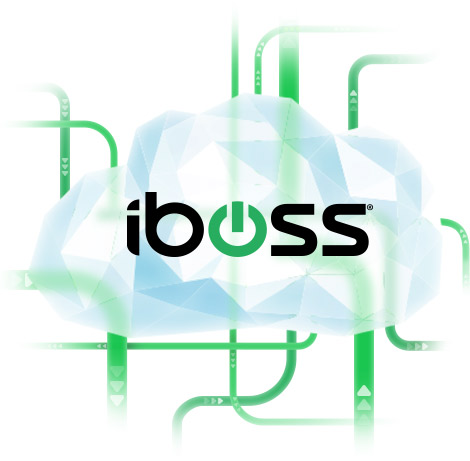Provide Fast Connections to Cloud Applications for Remote Workers
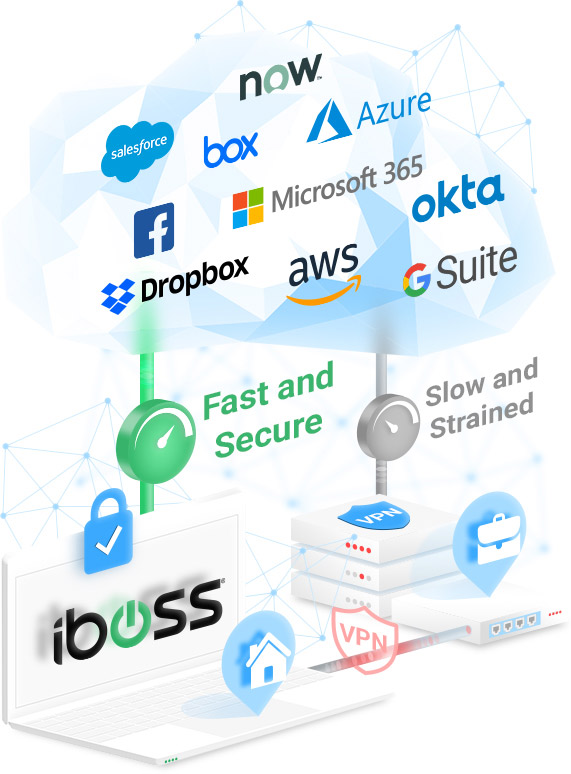
Connect Users Directly to Cloud Applications With iboss Cloud
Cloud applications require a lot of bandwidth to enable users to be productive and have a great experience. Content sharing sites, online meeting apps like Zoom, and Microsoft 365 require fast connections as data is exchanged between users and those applications in the cloud. Ensuring compliant and secure connections to the cloud is also a requirement to prevent malware and data loss. To make things challenging, users have all gone remote but fast and secure connections to these applications is still required. If data is being sent through a VPN for remote work, slow connections are almost guaranteed as the data overwhelms VPN infrastructure, data center bandwidth and on-prem network security infrastructure. The loss in productivity and poor end-user experience from remote workers results in exponential losses to the organization as work comes to screeching halt.
The iboss cloud platform can alleviate this problem immediately by offloading all cloud traffic from the VPN and sending it directly to the applications in the cloud. This includes offloading Microsoft 365 traffic, online meeting applications, G-Suite and virtually all cloud and Internet bound traffic through the iboss cloud security service. The iboss cloud platform ensures compliance, malware defense and data loss prevention are applied to all connections, without having to send those connections through slow and bottlenecked office connections.
The Problem
The applications users need live in the cloud. Virtually all applications have moved to the cloud or will be there soon. However, the connections between users and those applications may still be going through the office or data center through VPNs. Why is network data from end users to cloud applications going through the corporate network if those users are remote and the applications they are accessing are not in the office? The typical answer is that this is done to ensure compliance, malware defense, data loss prevention and visibility remains intact as users work remote and connect to cloud resources.
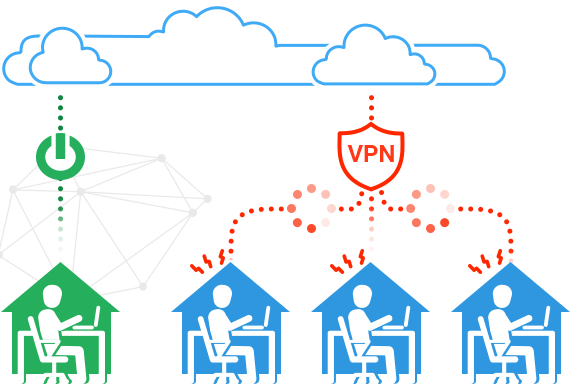
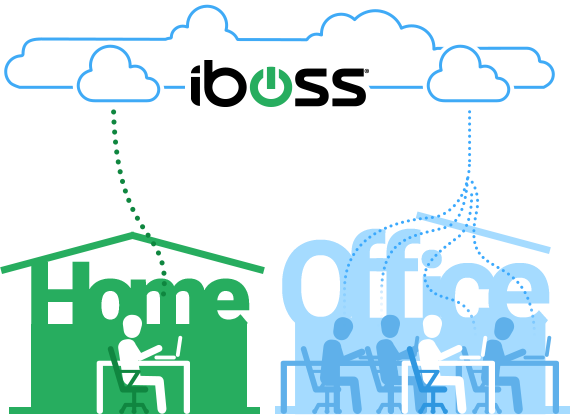
However, remote workers typically have a lot of accessible bandwidth at a very low consumer price. When you multiply the number of remote works and the amount of bandwidth available to each, the amount of total bandwidth being sent through the VPN and on-prem proxy appliances is staggering. There is no amount of network security proxies, VPN infrastructure or bandwidth that an organization can purchase that can handle the type of load required to secure the volume of bandwidth from all of the remote workers. And HTTPS encrypted traffic makes things worse as that traffic must be decrypted in order to be inspected, increasing appliance purchases even further.
Typical Complaints and Challenges

Remote workers complaining about slow connections to cloud applications

Remote workers unable to connect to cloud applications due to slow or down connections through the corporate data center
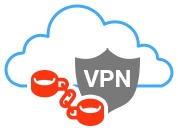
Remote workers complaining that the VPN is slow or they cannot connect to the VPN leaving them unable to work on Microsoft 365 or connect to online meetings
How the Solution Works
Since the iboss cloud platform runs in the cloud, users are connected directly through the iboss cloud platform while they access cloud applications like Microsoft 365, meeting apps like Zoom, content sharing applications and other online resources. As the connections go through the iboss cloud platform, the network data is scanned for compliance, malware defense and data loss to ensure security and visibility is applied at all times.
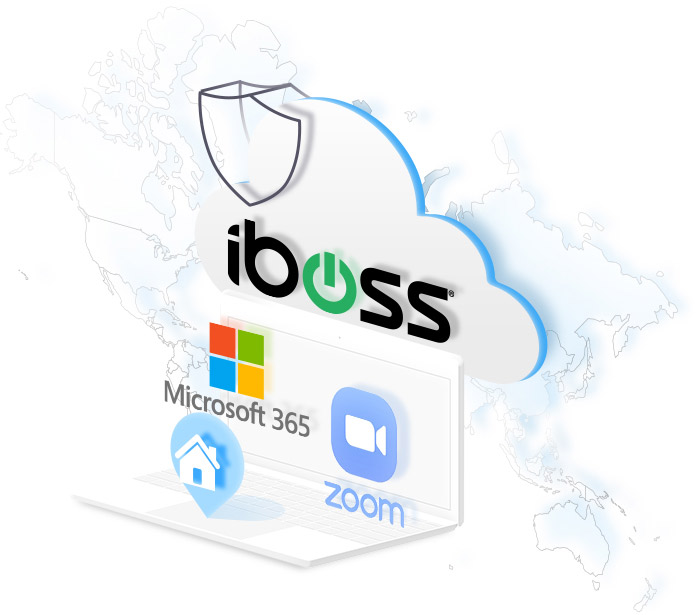
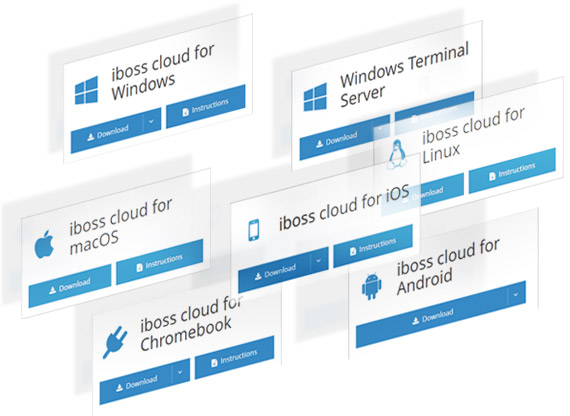
The iboss platform includes agents for virtually every operating system and can also be pushed by MDM. User connections to all cloud applications will immediately improve as there are no restrictions in the amount of bandwidth the iboss cloud platform can handle. The agent also takes care of all technical details automatically, such as installing the root MITM decryption certificate to inspect all HTTPS traffic.
If users are using VPNs, traffic from the VPN is offloaded using split tunneling. Only traffic that will end up in the office should be sent through the VPN while all other traffic, the vast majority of it, is sent through the iboss cloud. The split tunneling works by setting iboss as the default VPN route. The specific office destinations are configured as explicit routes. The iboss agents are completely compatible with all VPN clients, run silently, can be pushed out via bulk deployment methods instantly and have the ability to send ALL cloud traffic through the iboss cloud service for inspection and protection.
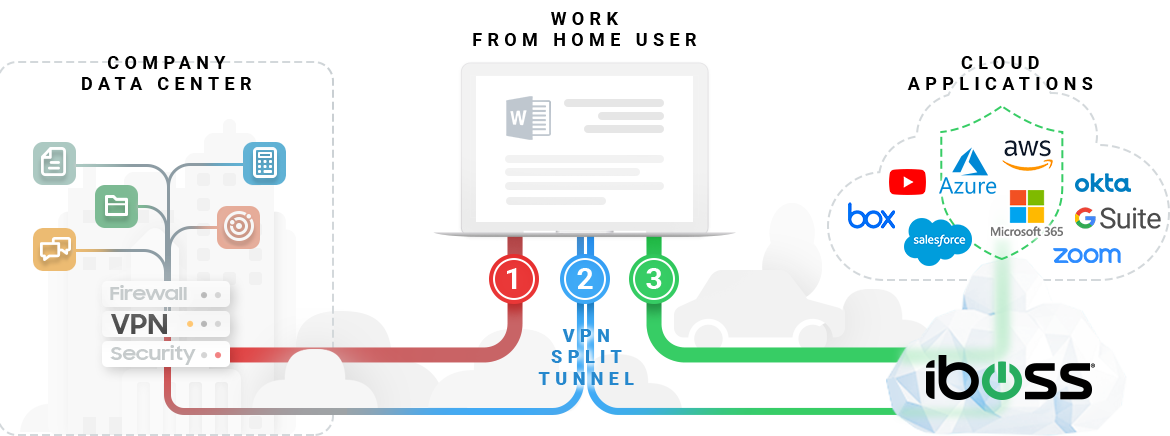
Bad
Sending all traffic through a VPN to a datacenter hosting proxy appliances is the worst case scenario and will lead to slow and unusable connections for users, especially remote workers.
Better
Leverage iboss as your Secure Access Service Edge (SASE) platform for internet bound traffic. Offloading Internet bound traffic to iboss while only sending traffic that terminates at the office through the VPN will greatly improve the end user experience by increasing connection speeds dramatically. The iboss cloud connector takes the default route on the end user device and automatically redirects all non-private traffic through iboss cloud for security. This improves user productivity and streamlines connections to Microsoft 365, Zoom, Teams, and other cloud applications. It also reduces the proxy and network security appliance footprint and the data center as all heavy traffic processing is performed within iboss cloud which has infinite scale.
Best
Leverage iboss as your Secure Access Service Edge (SASE) platform for ALL network traffic, both public and private, so that users are connected directly to any cloud resource quickly and securely. Sending all traffic through iboss cloud, both private and public, connects users to all cloud resources quickly and securely based on user identity and role. It eliminates costs by eliminating proxy and network security appliances hosted at the data center or office by performing security functions in the cloud and eliminating VPN infrastructure. Users connect to iboss cloud and all traffic to Microsoft 365, cloud applications and video conference apps such as Zoom and Microsoft Teams is sent directly from the user to the cloud application with no extra hops to on-prem infrastructure. Since iboss is connected to all resources, public and private, it can connect users directly to those resources based on user role with speed and security while greatly reducing infrastructure costs, management costs and improving user productivity as they work with the network speed necessary to use cloud applications efficiently. The iboss platform is the premier SASE and Zero Trust platform that is the center piece of your cloud transformation.
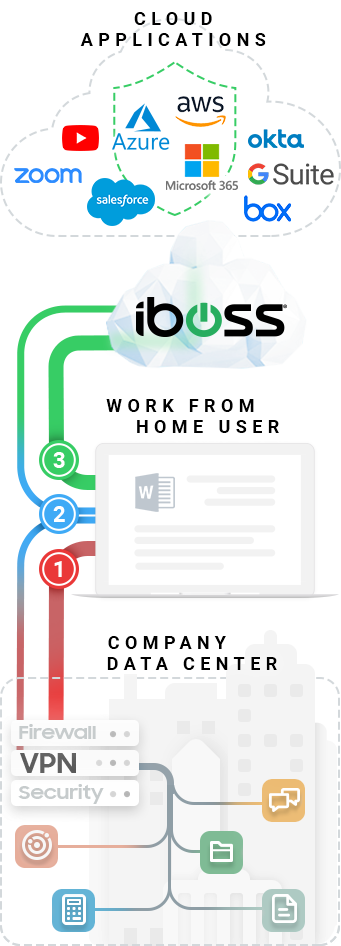
Instant Benefits and Savings
With users connected to applications without slowdown, productivity and end user experience improves instantly. This results in more valuable output from critical employee resources. In addition, the elimination of proxy and other network security appliances results in the reduction of the data center footprint and large reductions in infrastructure costs. The savings continue as the iboss cloud platform eliminates the need to purchase more network proxies or VPN infrastructure as remote worker cloud application use and bandwidth increases over time. Worrying about remote work and increasing encrypted bandwidth no longer becomes the top priority on the IT’s list.
